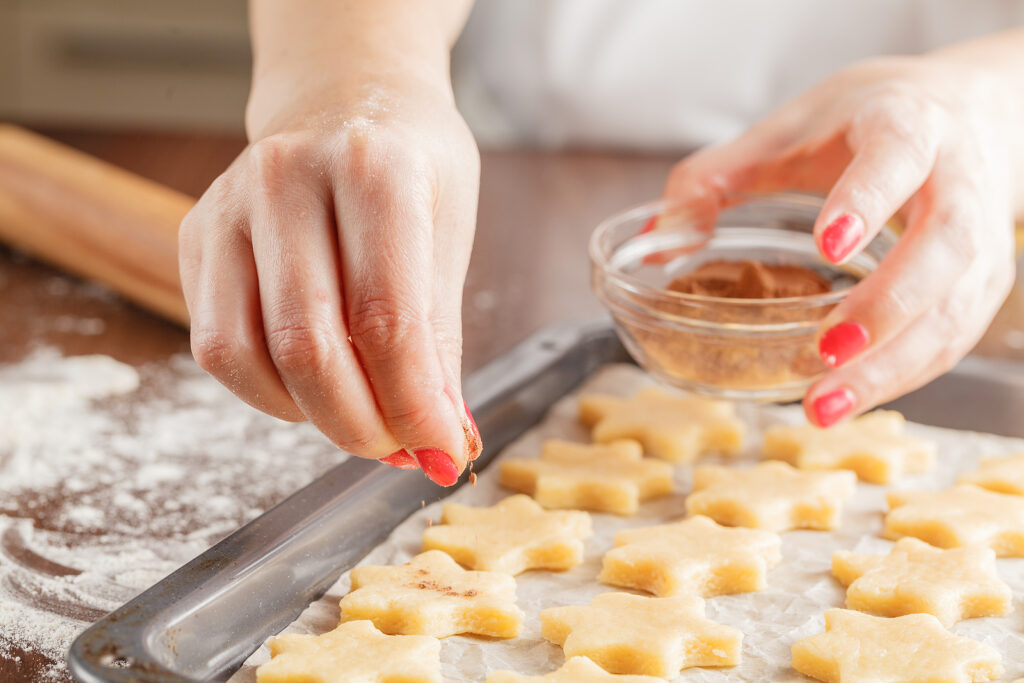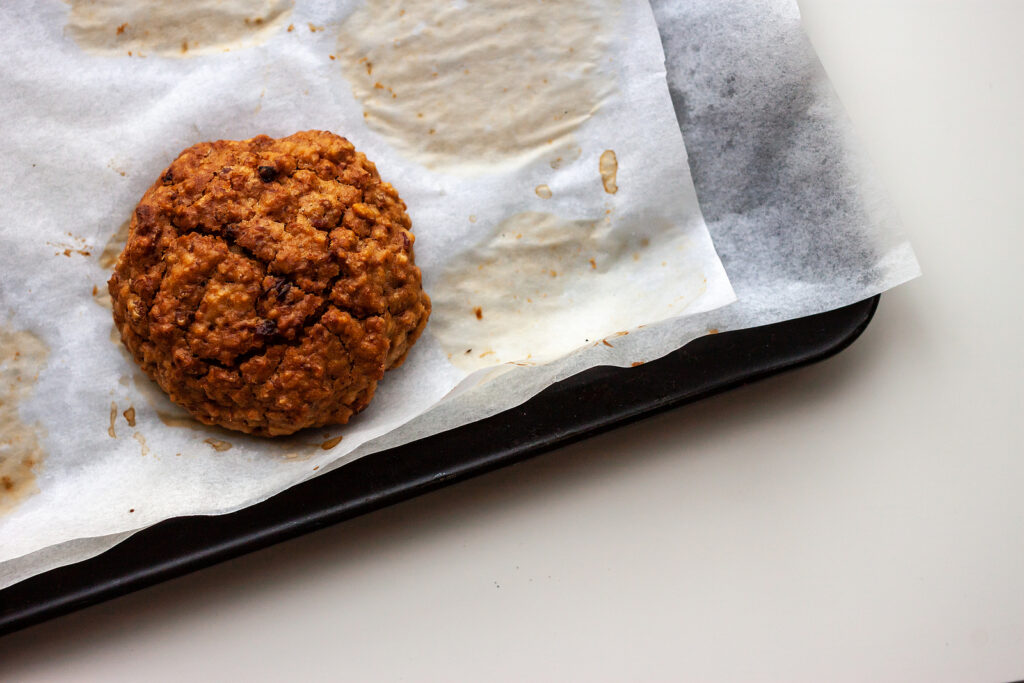How Long Do Homemade Cookies Last
As someone who loves baking homemade cookies, I often find myself wondering, “How long can I savor these delightful treats?” Whether you're a seasoned baker like me or someone who enjoys whipping up a batch every now and then, it's crucial to grasp the shelf life of your homemade creations.
So, let's dive into this comprehensive guide where we'll explore the factors that influence how long your homemade cookies stay fresh, share some of my personal storage tips to extend their deliciousness, and offer insights on when it's finally time to bid adieu to these irresistible treats.
Factors Affecting the Shelf Life of Homemade Cookies
When it comes to preserving the delectable freshness of your homemade cookies, it's essential to consider a range of factors beyond just storage techniques. Let's explore these elements that play a pivotal role in determining how long your cookies will remain in their prime.
- Ingredient Selection: The choice of ingredients significantly impacts the shelf life of your cookies. For instance, cookies made with dairy products like butter or milk tend to have a shorter shelf life compared to those crafted without such ingredients. Ingredients like nuts, chocolate chips, and dried fruits can also influence longevity due to their oil content or potential for moisture absorption.
- Moisture Content: The moisture content within your cookies is a critical factor. Cookies with higher moisture content, such as those containing fruits or cream, are prone to spoilage sooner than drier cookie varieties like shortbreads. Balancing the moisture levels in your recipe can, therefore, help extend the shelf life.
- Storage Conditions: How you store your homemade cookies is paramount. Proper storage can significantly extend their freshness, while improper storage can expedite deterioration. Factors to consider here include airtight containers, temperature control, and protection from light and air.
- Packaging: The packaging you choose plays a role as well. Sturdy, airtight containers or resealable bags can help maintain cookie freshness, preventing exposure to moisture and air.
- Preservatives: Some recipes may incorporate preservatives, such as citric acid or honey, to extend shelf life. Understanding and using these additives appropriately can influence how long your cookies stay fresh.
- Baking Method: The way you bake your cookies can affect their shelf life too. Overbaking can make cookies dry and crumbly, reducing their overall freshness. Properly baked cookies, on the other hand, are more likely to stay delicious for a more extended period.
- Humidity Levels: The local climate and humidity levels in your area can impact how your cookies fare. High humidity environments can cause cookies to become softer or stale faster, while low humidity environments may lead to excessive dryness.
- Sealing Techniques: When storing cookies for an extended period, consider using vacuum-sealed bags or containers with silicone gaskets to ensure an airtight seal. This can protect your cookies from moisture and air infiltration.
- Cooling Before Storage: Allowing your cookies to cool completely before storing them can prevent condensation from forming inside the container, which can lead to sogginess or mold growth.
- Freezing: If you plan to keep your cookies for an extended period, freezing them can be an effective method. Properly wrapped and stored, frozen cookies can maintain their quality for months.

How Long Do Homemade Cookies Last?
The longevity of homemade cookies is influenced by a variety of factors, including their ingredients, moisture content, and storage conditions. To provide a more comprehensive guide to how long different types of homemade cookies typically remain fresh under various circumstances, we have detailed information on each type:
Butter Cookies:
These rich and crumbly delights can last approximately 1 to 2 weeks when stored in an airtight container at room temperature. Their longevity is due to the low moisture content, which helps preserve their texture and flavor.
For extended freshness, consider freezing them. When properly frozen, butter cookies can maintain their quality for up to 6 months, making them a convenient treat for future enjoyment.
Chocolate Chip Cookies:
Beloved chocolate chip cookies, a favorite among many, typically retain their freshness for about 1 to 2 weeks when stored in an airtight container at room temperature. Their moisture level, provided by the chocolate chips, plays a role in their shorter shelf life.
To maximize their shelf life, freezing is an option. By freezing chocolate chip cookies, you can extend their deliciousness for up to 3 months, ensuring you always have a batch on hand.
Sugar Cookies:
Sugar cookies, often beautifully decorated and iced, can keep well for 2 to 3 weeks when stored in an airtight container at room temperature. The sugar content acts as a natural preservative, helping to maintain their freshness.
The freezer can also be their friend. Frozen sugar cookies can maintain their quality for 2 to 3 months, making them a convenient choice for special occasions or unexpected cravings.
Oatmeal Cookies:
Thanks to their chewy texture and moisture content from oats, oatmeal cookies typically stay fresh for 1 to 2 weeks when stored in an airtight container at room temperature. The oats contribute to their resilience.
As with other cookie types, freezing extends their shelf life, allowing them to remain delightful for up to 3 months. This is particularly useful if you enjoy a slower pace of consumption.
Shortbread Cookies:
Shortbread cookies, with their crumbly, buttery goodness, enjoy a longer shelf life compared to many other cookie types. When stored in an airtight container at room temperature, they can stay fresh for up to 2 months, making them a wonderful treat for longer-term enjoyment.
Freezing can further extend their shelf life to 6 months or more, making shortbread cookies a great candidate for batch baking and storage.
Nut-Filled Cookies:
Cookies featuring nuts, such as pecans or walnuts, can maintain their freshness for approximately 2 weeks in an airtight container at room temperature. The nuts can introduce oils that affect their shelf life.
Freezing is an excellent option if you wish to savor them for up to 3 months. This preserves the nutty flavor and texture, ensuring you can enjoy these cookies at your leisure.
Fruit-Filled Cookies:
Cookies containing dried fruits or preserves tend to have a shorter shelf life due to their moisture content. Expect them to remain fresh for about 1 to 2 weeks when stored in an airtight container at room temperature.
Freezing can be a solution for extending their lifespan to 2 to 3 months, but it's essential to note that the texture of the fruit filling may change slightly upon thawing.
Storage Tips for Homemade Cookies
Now that you have a deeper understanding of how long different types of homemade cookies typically remain fresh, let's delve into comprehensive storage tips to ensure your delectable creations stay at their best:
- Use Airtight Containers: Preserving the freshness of your homemade cookies hinges on airtight containers. These containers create a protective barrier against moisture and air, thwarting staleness and spoilage. Consider using resealable plastic bags with strong seals or invest in sturdy cookie tins equipped with tight-fitting lids to safeguard your treats.
- Separate Layers with Parchment Paper: When stacking cookies in an airtight container, take the extra step of placing sheets of parchment paper between the layers. This simple act prevents cookies from sticking together or absorbing moisture from their neighbors, maintaining their individual quality.
- Store Similar Types Together: If you have an assortment of cookies, it's wise to group them by type when storing. Strongly flavored cookies, such as those infused with spices or citrus, should be stored separately from milder varieties to prevent any unwanted flavor intermingling.
- Avoid Excessive Moisture: Remember that moisture is the arch-nemesis of cookie freshness. Ensure that your storage containers are thoroughly dry before placing cookies inside. Additionally, steer clear of storing cookies in a humid environment, as excess moisture can compromise their texture and taste.
- Keep Them Cool and Dark: The ideal storage conditions for your cookies involve a cool and dark place. Direct sunlight and extreme temperatures can cause your cookies to deteriorate rapidly, leading to flavor and texture changes. Choose a pantry or cupboard away from heat sources to maintain their quality.
- Consider Freezing: If you desire an extended shelf life for your homemade cookies, freezing is an exceptional option. To freeze cookies effectively, wrap them individually or in small batches with plastic wrap. Then, place them in airtight containers or resealable bags. Don't forget to label them with the date of storage to track their freshness. When you're ready to enjoy them, a simple room-temperature thawing process will have your cookies tasting just as delightful as when they were first baked.

Signs Your Homemade Cookies Have Gone Bad
While homemade cookies are a delightful treat, their freshness has limits. It's crucial to be able to identify signs that your beloved cookies may have spoiled or deteriorated. Here are key indicators that it's time to bid farewell to your homemade cookies:
Mold or Off Odors
The presence of mold on your cookies is a definitive signal that they are no longer safe to consume. If you spot any mold growth, even a small amount, or detect unusual odors emanating from your cookies, it's essential to dispose of them promptly. Mold can pose health risks if ingested, so err on the side of caution.
Stale Texture
Homemade cookies are at their best when they are soft, chewy, or crispy, depending on the variety. If you find that your cookies have lost their freshness and developed a stale texture, it's a clear indication that they have passed their prime. Stale cookies can be excessively hard, crumbly, or tough to chew. When your cookies no longer offer the delightful texture you expect, it's time to let them go.
Off Taste
Trust your taste buds as a reliable guide. If your cookies taste unusual, have developed an off-putting flavor, or lack the deliciousness you associate with them, this is another sign that they have gone bad. An altered taste can be a result of factors like moisture infiltration, oxidation of fats, or the presence of spoilage microorganisms. In such cases, it's best to refrain from consuming them.
Excessive Dryness
If your cookies have become excessively dry and crumbly, they may have lost their moisture content, leading to a less enjoyable eating experience. Dry cookies can also indicate prolonged exposure to air, which can cause them to become stale. When your cookies have turned into dusty, overly dry morsels, it's time to bid them farewell.
Discoloration
Notice any unusual or unexpected changes in the color of your cookies? Discoloration can be a sign of oxidation or the presence of undesirable microorganisms. Cookies that have developed uncharacteristic colors, such as dark spots, greenish hues, or any other deviations from their original appearance, should be discarded.
Texture Changes
In addition to becoming stale, cookies can undergo other texture changes as they age. Look out for cookies that have become overly soft, overly hard, or have developed an unpleasant grainy or slimy texture. These alterations in texture can signal spoilage or degradation of ingredients.
Rancid Smell or Taste
If your cookies emit a rancid or foul odor, it's a strong indication that the fats or oils used in the recipe have gone bad. Similarly, if the taste is off, with a bitter or unpleasant aftertaste, it's best to avoid consuming them. Rancidity in cookies is typically caused by the oxidation of fats, which can make them unpalatable and potentially harmful.
Frequently Asked Questions (FAQs) About Homemade Cookies
How long do homemade cookies last at room temperature?
The shelf life of homemade cookies at room temperature typically ranges from 1 to 3 weeks, but this duration depends on various factors. These factors include the cookies' moisture content, ingredients, and the quality of storage conditions.
Can I extend the shelf life of homemade cookies in the refrigerator?
While refrigeration is an option for storing cookies, it is not the best choice for most cookie types. The cold and humid environment in the refrigerator can accelerate the staling process of cookies. Instead, it is generally advisable to keep cookies fresh by storing them in an airtight container at room temperature.
What is the best way to store homemade cookies to keep them fresh?
The optimal method for storing homemade cookies and preserving their freshness is to place them in an airtight container at room temperature. To prevent sticking, you can use parchment paper between layers. Additionally, it is important to shield the cookies from direct sunlight and moisture, which can compromise their quality over time.
Can I freeze homemade cookies?
Yes, freezing homemade cookies is an effective method to prolong their shelf life. For this purpose, you should individually wrap the cookies or group them in small batches using plastic wrap. Then, store them in airtight containers or resealable bags, making sure to label them with the storage date. When properly frozen, cookies can remain fresh for several months.
How can I tell if my homemade cookies have gone bad?
Indications that homemade cookies have gone bad include the presence of mold, unusual or unpleasant odors, a stale or tough texture, or an off-putting taste. If you detect any of these signs, it is advisable not to consume the cookies to avoid potential health risks.
Do different types of homemade cookies have different shelf lives?
Yes, the shelf life of homemade cookies can vary based on their type. For instance, cookies like butter cookies and shortbread tend to have a longer shelf life compared to cookies with higher moisture content, such as those containing fruits or cream.
Can I use preservatives to extend the shelf life of homemade cookies?
Certain recipes may include preservatives like citric acid or honey to extend the shelf life of cookies. If you choose to use preservatives, it is crucial to follow the recipe instructions carefully to ensure their safe and effective utilization.
Should I let homemade cookies cool before storing them?
Yes, it is essential to allow homemade cookies to cool completely before storing them. This practice prevents the formation of condensation inside the storage container, which can lead to sogginess or mold growth.
What's the best way to thaw frozen homemade cookies?
To thaw frozen cookies, simply place them at room temperature for a few hours or overnight. Avoid using a microwave for this purpose, as it can alter the cookies' texture and flavor.
Can I mix different types of cookies in the same storage container?
It is generally recommended to store similar types of cookies together to avoid flavor cross-contamination. Strongly flavored cookies should be stored separately from milder varieties to preserve their distinct characteristics.
Conclusion
Homemade cookies are a delightful treat, but their shelf life can vary depending on several factors. By understanding these factors and following proper storage practices, you can ensure that your cookies remain fresh and tasty for as long as possible. Remember to use airtight containers, keep them in a cool and dark place, and consider freezing if you want to extend their shelf life significantly.
In summary, the answer to the question, “How long do homemade cookies last?” is that it depends on the type of cookies and how well they are stored. By taking the right precautions, you can enjoy your homemade cookies long after they come out of the oven.




